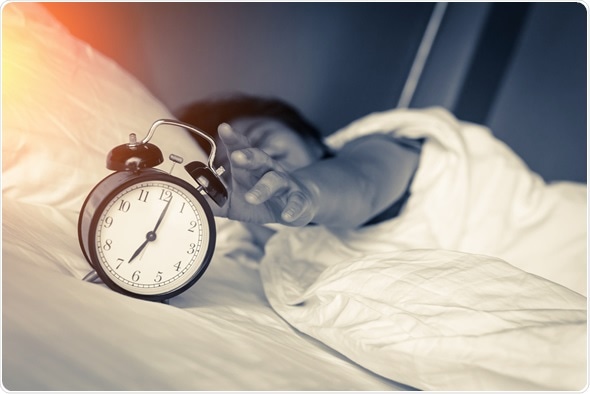Teenage or adolescence is often associated with changes in sleep patterns, which may often seem extreme. This period is linked to drastic physical, mental, and emotional changes, stemming from alterations in brain activity, which lead to changes in sleep rhythms as well.

Image Copyright: WHYFRAME / Shutterstock
It is known that the internal body rhythms, or Circadian rhythms, which relate to the time of day, are reset during puberty. Thus the sleep-inducing hormone melatonin starts to be secreted at a different time than before. This means that for an adolescent, it takes much longer both to wake up in the morning and to go to bed at night. At the same time, they also need more sleep than before for normal brain activity to occur.
In addition, a second sleep-wake homeostatic system is postulated to come into action, depending only on the prior hours of sleep or waking to determine how many hours an individual sleeps spontaneously.
While most earlier studies concluded that most teenagers needed 9¼ hours of sleep every night, a more recent but highly controversial study claimed to show that 7 hours sleep is optimal to maintain good health and alertness. This amount of sleep is difficult to get for most teenagers, however. In addition, even 8 hours of sleep is often impossible, because of the conflicting demands of studies, sports or music and other out-of-school activities, homework, and often part-time work, besides hanging out with friends.
Helping a Teenager Sleep
To ensure that a teenager receives enough sleep, it is necessary to take some steps:
- Review the bedtime routine to make sure it is relaxing enough to wind down from the busy day.
- Look over the daily and weekly schedule to cut out those activities which can be dispensed with, in order to be able to fit the rest into a full day and yet go to bed at an hour which gives the right amount of sleep before wake-up time.
- Cut down on post-noon caffeine and avoid alcohol, substances which stimulate the brain
- Avoid intensive studying just before bedtime
- Turn off computers and televisions before bedtime - their bluish light wakes the brain and makes it difficult to sleep
- Avoid angry talk around bedtime or resolve it immediately
- Make sure the bedding is clean and comfortable
- Darken all sleeping areas properly but put on the lights immediately after they wake up
- Avoid daytime naps or limit them to 30 minutes, and always before dinner
- Have a light snack such as a glass of hot milk at bedtime
- Have a shower to reduce the core temperature, which is itself a good sleep-inducer
- If they need to sleep in over weekends, wake them up in a couple of hours, so that their body clock is not reset
Difficulties of too Little Sleep
Sleep deprivation has many adverse effects, including:
- Academic struggles due to
- Poor memory
- Poor concentration
- Reduced creativity
- Problems with assimilating information
- Difficulty in staying awake during school hours
- A tendency to fall asleep at inappropriate times
- Mood swings
- Depression or worrying
- Hyperactivity
- Emotional outbursts or withdrawal
- Lack of self-assurance
- Lowered immunity
- Poor judgment
- Increased impulsive behavior
- Driving accidents
A large study involving 12,000 teenagers found that those spending less than 8 hours a night in sleep had a higher risk of behaviors such as:
- Smoking tobacco or marijuana
- Alcohol use
- Lack of exercise
- Computer use for over 3 hours daily
- Depressive thoughts
- Suicidal ideas
Long-term problems which may arise from the sleep deprivation include obesity and hypertension.
References
Further Reading